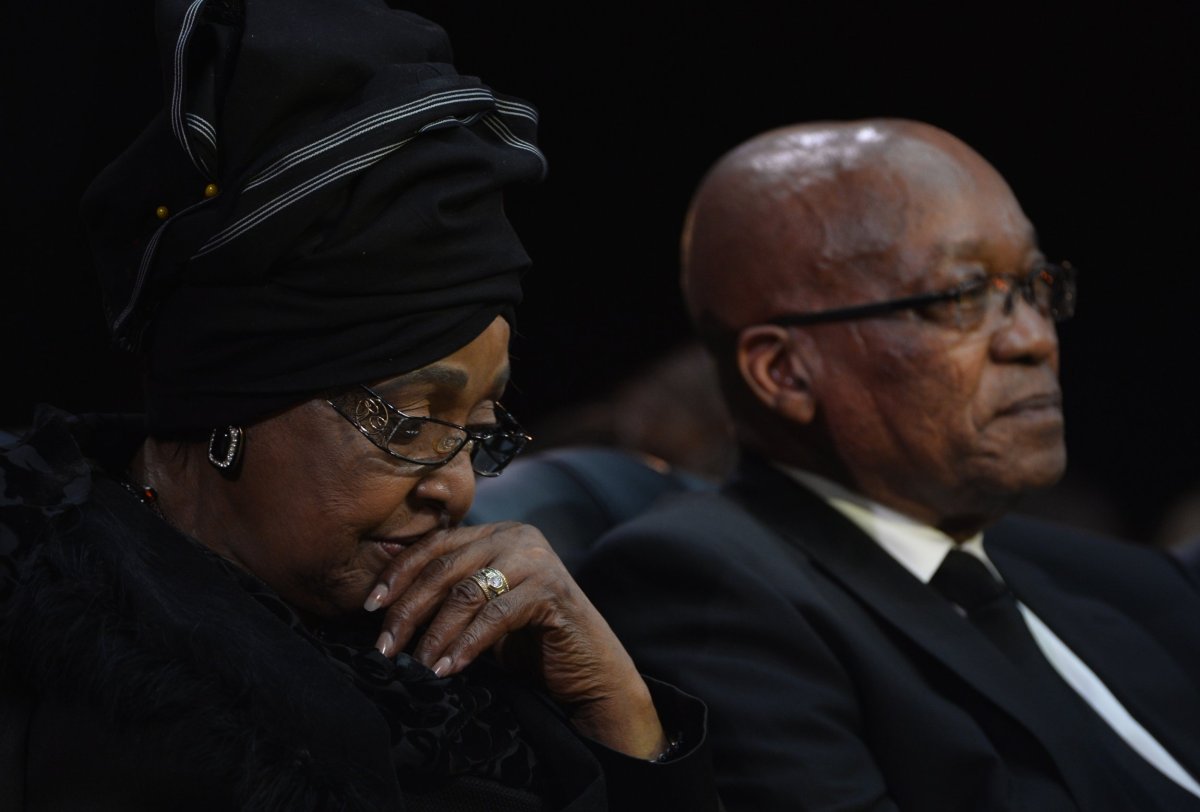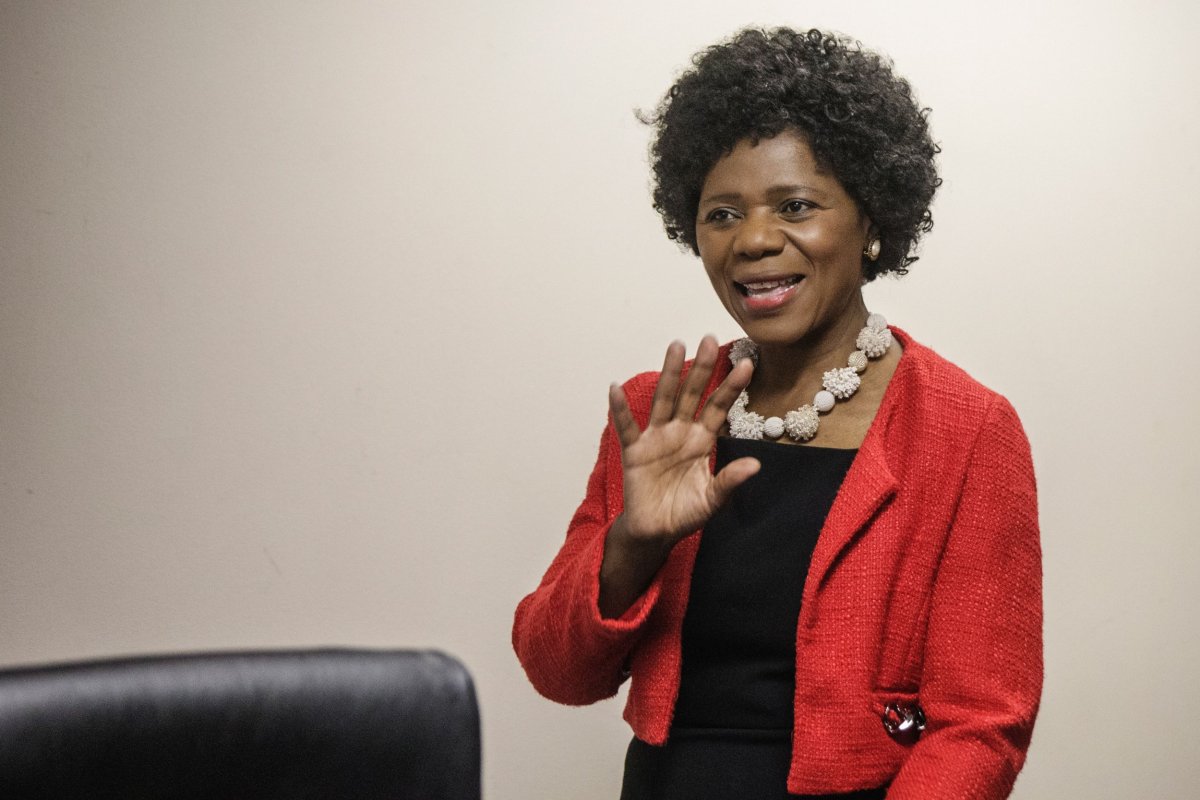
South African President Jacob Zuma showed his fatigue recently, drifting off during the finance minister's mid-term budget speech. Perhaps Zuma is run down by having to face motions of no confidence against his leadership on such a regular basis.
Thursday saw the South African parliament debate the third no confidence motion put against Zuma since the start of 2015. The vote was characterized by Mmusi Maimane, leader of the opposition Democratic Alliance (DA)—which lodged the motion—as a choice between Zuma and the future of South Africa.
Nevertheless, the motion produced the same result as previous attempts to impeach the scandal-ridden Zuma: a resounding vote in favor of keeping the president in post.
Such a result was to be expected; the DA admitted as much in its post-vote statement, where the opposition party said it knew it was "unlikely" that African National Congress (ANC) parliamentarians would back the motion. The ANC has a huge parliamentary majority—controlling 249 of the 400 National Assembly seats—and the motion requires a simple majority to pass. Thursday's motion was defeated by 214 votes to 126, with 35 ANC MPs absent from the vote.
Another comprehensive result against the opposition and in favor of Zuma begs the question: Why bother continually calling motions of no confidence?
One reason could be to expose the gaping divisions in the governing party, which rose to power in 1994 under Nelson Mandela's leadership as South Africa emerged from the racially-segregated era of apartheid.
The ANC is divided perhaps like never before. A series of scandals involving Zuma—from using state funds to redecorate his home, to allegedly granting political influence to his friends in business—and the ANC's worst election result since 1994 in August's local government polls has resulted in top party officials breaking ranks to speak out against Zuma. These have included ANC Chief Whip Jackson Mthembu—who called in October for the entire ANC leadership, including himself, to step down—and Winnie Madikizela-Mandela, the wife of Mandela and fondly known by supporters as "Mother of the Nation," who said in September that the party required a "whole layer of fresh leadership."
But the vote failed to expose such divisions. The ANC parliamentarians present at Thursday's vote unanimously backed their man, despite the opposition's most earnest pleas.
The DA, however, maintains that some ANC members voted with their feet. Thirty-five ANC parliamentarians from the governing party were absent from the vote, including Madikizela-Mandela and Finance Minister Pravin Gordhan, who was the subject of what he described as a "politically motivated" fraud case until October 31, when state prosecutors dropped charges.

While each of those ANC MPs may have a perfectly acceptable reason for not being present at the vote, the DA has said it will request the record of leave applications, as it suspects that some were absent on purpose since they "could clearly not stomach the unconscionable act of protecting Zuma."
Secondly, tabling a no confidence motion is an easy political win for the opposition. Such motions allow the opposition to portray itself as the true guardian of South Africa's constitution and reveals the ANC as being in Zuma's thrall, according to Gareth Newham, an expert from South African thinktank the Institute for Security Studies.
"When the opposition forces ANC parliamentarians to stand behind Zuma, it sends a very clear message that he is bigger than the party and it weakens the ANC's brand in the eyes of South Africans," says Newham.
Additionally, South Africa's judiciary has commended the use of no confidence motions in the past. The former parliamentary leader of the DA, Lindiwe Mazibuko, brought a Constitutional Court case against the ANC's former National Assembly speaker and the ANC chief whip, in 2013. Mazibuko accused the ANC members of attempting to block a motion of no confidence. In its judgement, the Constitutional Court—South Africa's highest legal authority—stated that motions of no confidence were "perhaps the most important mechanism that may be employed by Parliament to hold the executive to account, and to interrogate executive performance."
Zuma has already fallen foul of the constitution once in 2016. The Constitutional Court ruled in March that the South African president had "failed to uphold the constitution" by declining to repay some of the millions of rand of state funds he used in renovating his Nkandla homestead, as ordered by former Public Protector Thuli Madonsela in a 2014 report. (Zuma has since repaid 7.8 million rand ($540,000)). Additional failures by the ANC to hold the president to account could further discredit him in the eyes of South Africans.
Tabling a no confidence motion also allows the opposition to take control of the country's political narrative. Since Madonsela published her report on so-called state capture—which focused on Zuma's alleged misconduct by affording political influence to the Gupta business family, allowing them to effectively "capture the state"—the focus of media and public attention has been the president, the ex-public protector, and the Guptas.

"The opposition has to create an issue and insert itself into the discourse," says Thorne Godinho, South Africa expert at risk analysts S-RM. "[Lodging a no confidence motion] serves the political purpose of saying, 'Hey, we're here, we respect the constitution. If the ANC doesn't support this motion, then they don't.'"
Indeed, the worst possible outcome for the opposition would be if a motion of no confidence in Zuma actually passed, says Newham. Zuma's pockmarked history and his habit of courting controversy means he is actually the best asset for the DA and Economic Freedom Fighters, South Africa's left-wing opposition.
"They have clearly understood and said as much that Zuma is such a liability to the ANC that he's their biggest draw card," says Newham. "With Zuma at the ANC's helm, they were able to grow their support in local government elections and are likely to grow further in the 2019 elections."
It is already certain that Zuma will not be standing as president in 2019; he will have served two consecutive presidential terms by then, the maximum permitted by South Africa's constitution. He could theoretically remain leader of the ANC, although many analysts are speculating that the party will remove him at its elective conference in December 2017, if not before. One thing seems certain—Zuma won't be budged by a motion of no confidence.
Uncommon Knowledge
Newsweek is committed to challenging conventional wisdom and finding connections in the search for common ground.
Newsweek is committed to challenging conventional wisdom and finding connections in the search for common ground.
About the writer
Conor is a staff writer for Newsweek covering Africa, with a focus on Nigeria, security and conflict.
To read how Newsweek uses AI as a newsroom tool, Click here.








